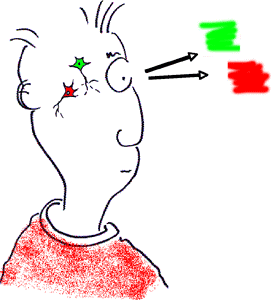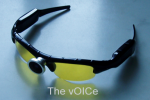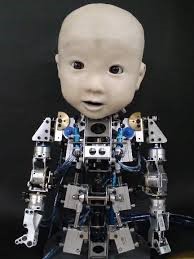FEEL is a european project financed by the European Research Council and hosted by the Laboratory of Perception Psychology of the University Paris Descartes. The goal of the project is to make a breakthrough in what is considered the “hard” problem of consciousness, namely the problem of feel. The breakthrough will be achieved through a five-pronged attack based on the sensorimotor approach: Two theoretical workpackages will consolidate and develop the philosophical and mathematical foundations of the sensorimotor theory. Three empirical workpackages will validate the theory in promising areas of experimental research on color, sensory substitution and infant development.
Here is the full description of work: ERC-2012-AdG-323674-FEEL-DOW-18-April-2013
Principal Investigator: J. Kevin O’Regan
Overview
Philosophers divide the problem of consciousness into two parts: An easy part, which involves explaining how one can become aware of something in the sense of being able to make use of it in one’s rational behaviour. And a hard part, which involves explaining why certain types of brain activity should actually give rise to feels: for example the feel of “red” or of “onion flavor”. The “hard” part is considered hard because there seems logically no way physical mechanisms in the brain could generate such experiences.The sensorimotor theory (ORegan, 2011) has an answer to the “hard” problem. The idea is that feel is a way of interacting with the environment. The laws describing such interactions, called sensorimotor contingencies, determine the quality of how a feel is experienced. For example, they determine whether someone experiences a feel as being real or imagined, as being visual or tactile, and how a feel compares to other feels. The sensorimotor theory provides a unifying framework for an understanding of consciousness, but it needs a firmer conceptual and mathematical basis and additional scientific testing. [read more]
WP1: Philosophy
 The sensorimotor theory is remarkable in that it is an unusual case where philosophy has actually propelled scientific advances (here, in color, sensory substitution, change blindness and robotics). For this reason the philosophical workpackage must be considered the veritable cornerstone of the FEEL project. Its role will be to ensure conceptual clarity, coherence and consistency in the whole project. Before further advances are attempted in the theory, we must place it properly into relation with other philosophical approaches to consciousness and we must treat theorical questions which remain unsettled. [read more]
The sensorimotor theory is remarkable in that it is an unusual case where philosophy has actually propelled scientific advances (here, in color, sensory substitution, change blindness and robotics). For this reason the philosophical workpackage must be considered the veritable cornerstone of the FEEL project. Its role will be to ensure conceptual clarity, coherence and consistency in the whole project. Before further advances are attempted in the theory, we must place it properly into relation with other philosophical approaches to consciousness and we must treat theorical questions which remain unsettled. [read more]
Researchers: Jan Degenaar (Post Doc), Lucia Foglia (PostDoc), David Silverman (PostDoc)
WP2: Formal sensorimotor theory
The purpose of this workpackage is to understand what are the feels of the body, of sensory modality, of external space, and to address these questions in a mathematically rigorous way. [read more]
Researcher: Alexander V. Terekhov (PostDoc)
WP3: Color
 This is the first among three empirical workpackages in the FEEL project, and it addresses what is for the philosophers the prototype among feels, namely color. Because color is so basic, demonstrating that the sensorimotor account of color is convincing would be a significant victory for the sensorimotor theory. [read more]
This is the first among three empirical workpackages in the FEEL project, and it addresses what is for the philosophers the prototype among feels, namely color. Because color is so basic, demonstrating that the sensorimotor account of color is convincing would be a significant victory for the sensorimotor theory. [read more]
Researcher: Christoph Witzel (PostDoc)
WP4: Sensory subsititution
 This second empirical workpackage of the FEEL project is concerned with a more general aspect of feel than the color package, namely the question of how a feel can be experienced as belonging to one sensory modality (e.g. vision) as opposed to another (e.g. audition). According to the sensorimotor theory, sensory modality is determined not by the channel through which information is obtained, but by the sensorimotor structure of this information. [read more]
This second empirical workpackage of the FEEL project is concerned with a more general aspect of feel than the color package, namely the question of how a feel can be experienced as belonging to one sensory modality (e.g. vision) as opposed to another (e.g. audition). According to the sensorimotor theory, sensory modality is determined not by the channel through which information is obtained, but by the sensorimotor structure of this information. [read more]
Researchers: Frank Schumann (PostDoc), Christoph Witzel (PostDoc)
WP5: Infant development and Robotics
This workpackage will study how some of humans’ most basic feels, namely proprioception and the sensory modalities, develop starting from as soon as possible after birth. We will also sample — at age up to 2 years — some aspects of the feels underlying more complex notions, namely object and tool. Results will then be compared to work being done currently in developmental robotics. [read more]

